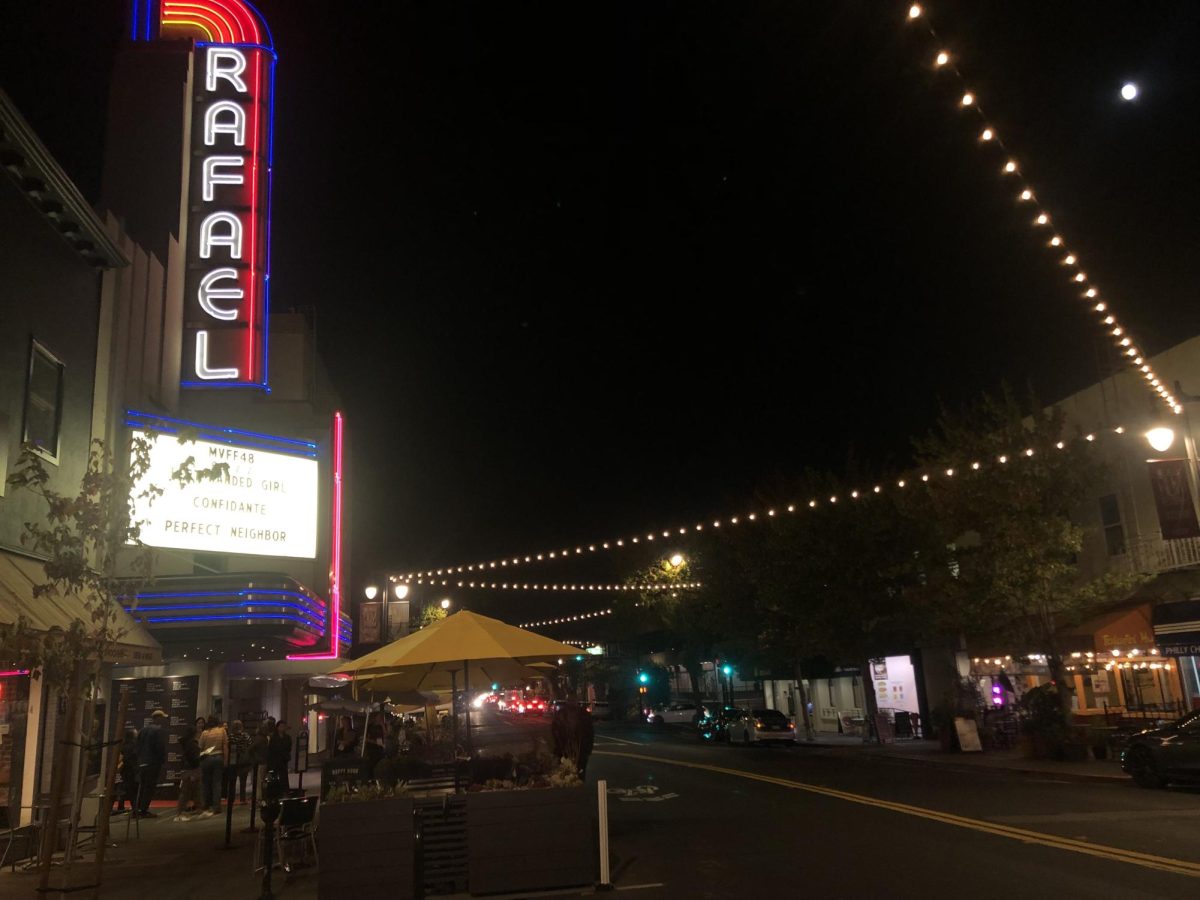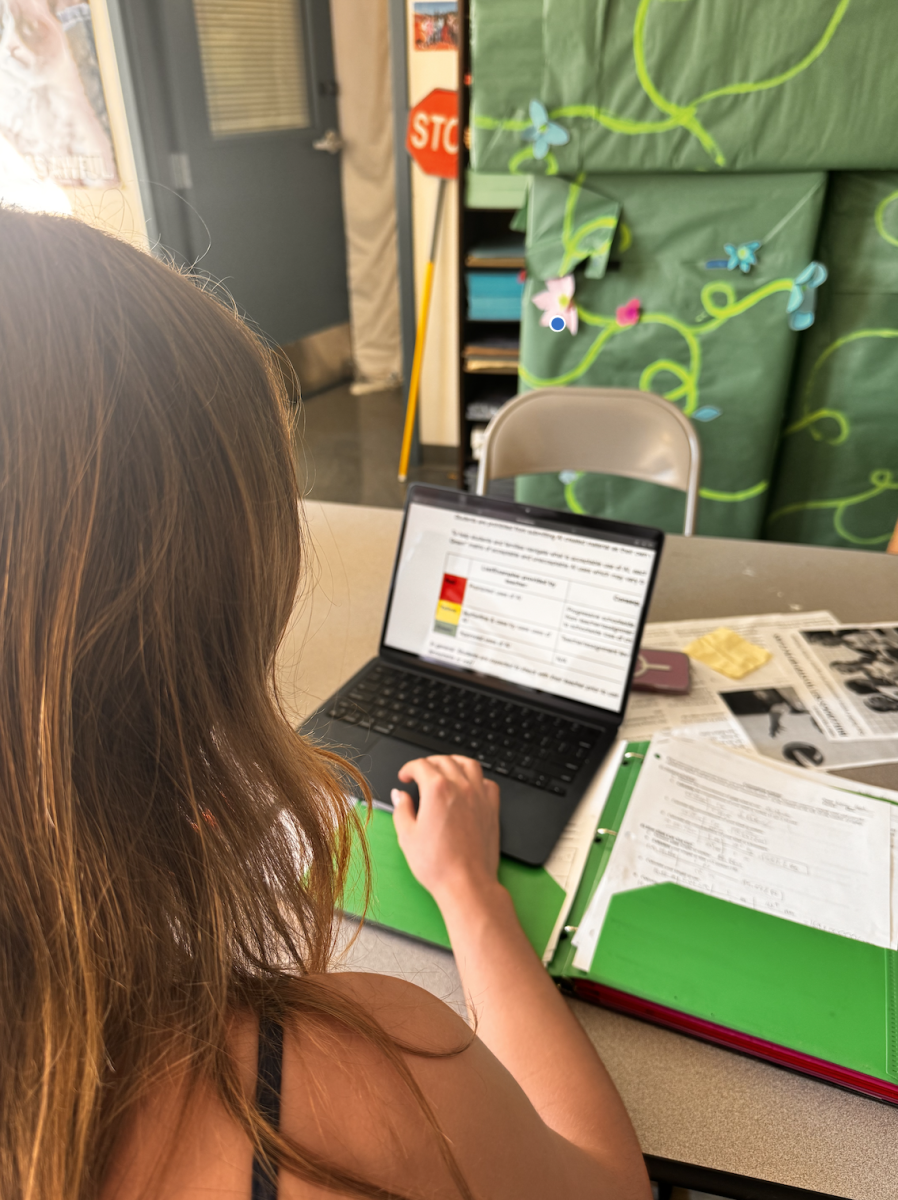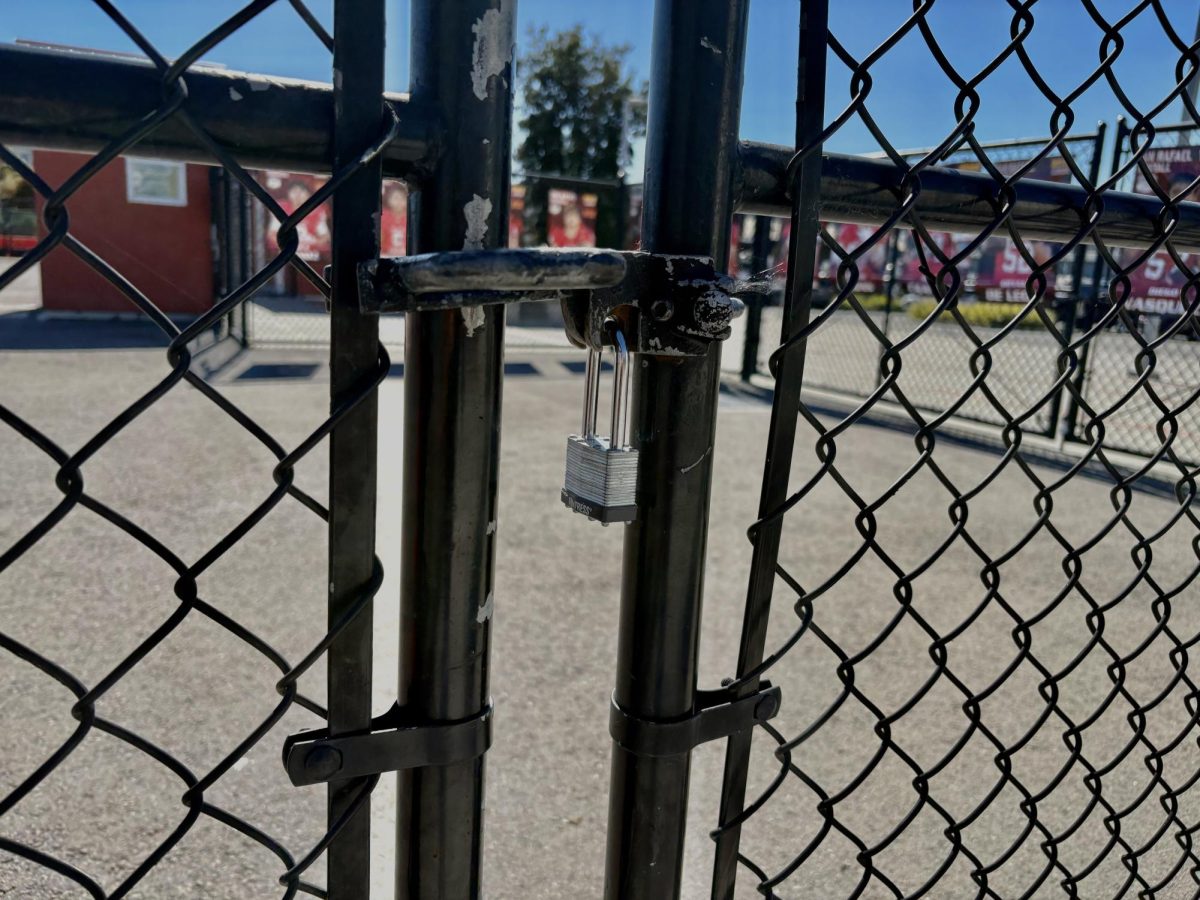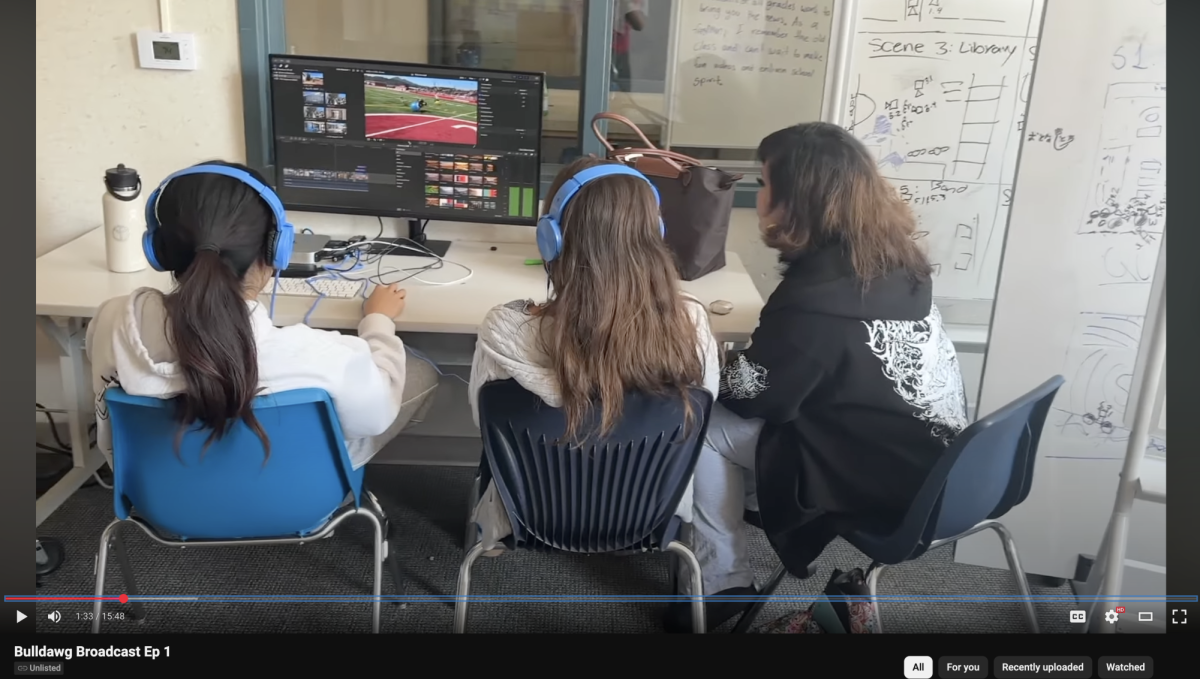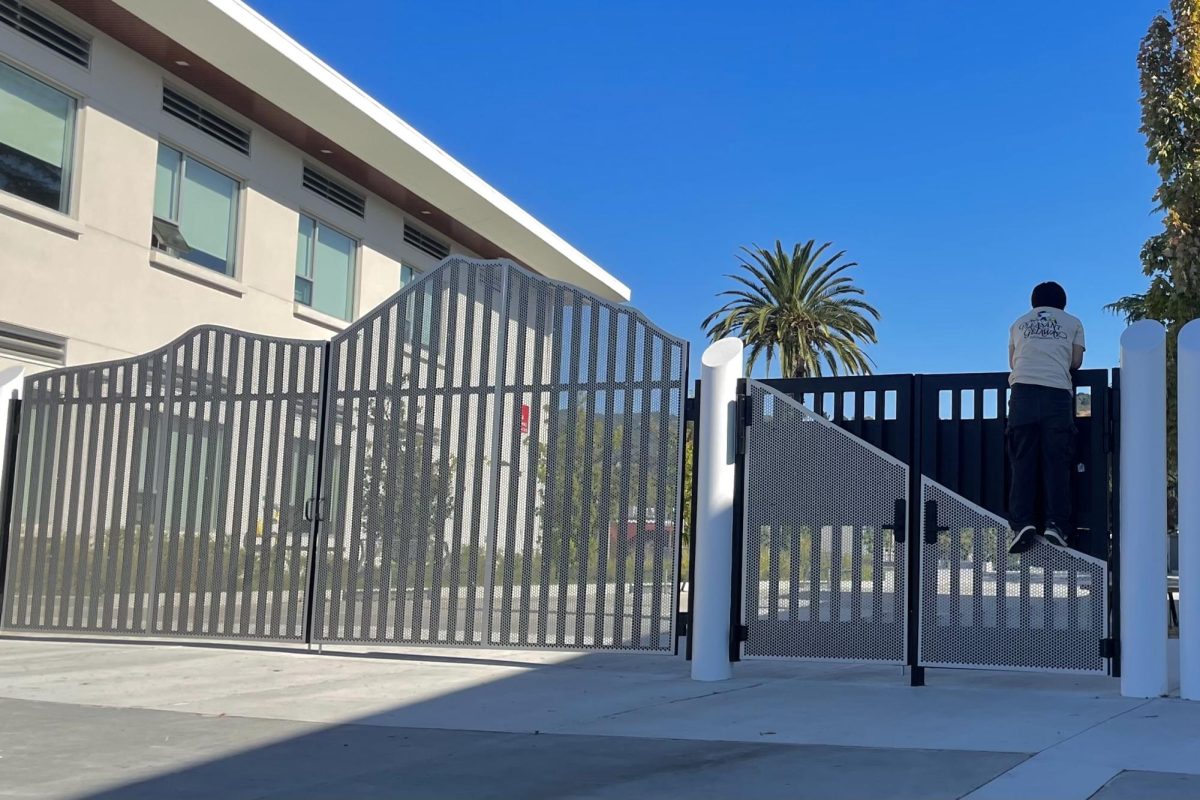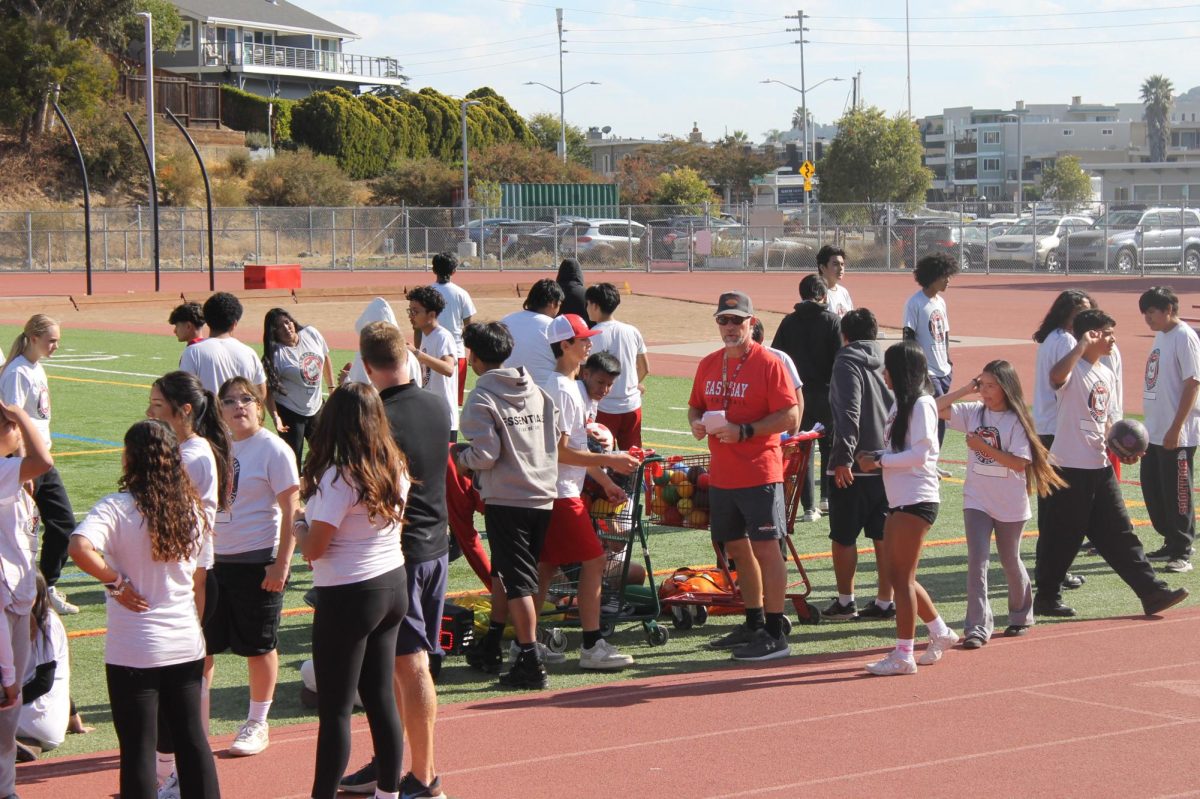Suburban Blues
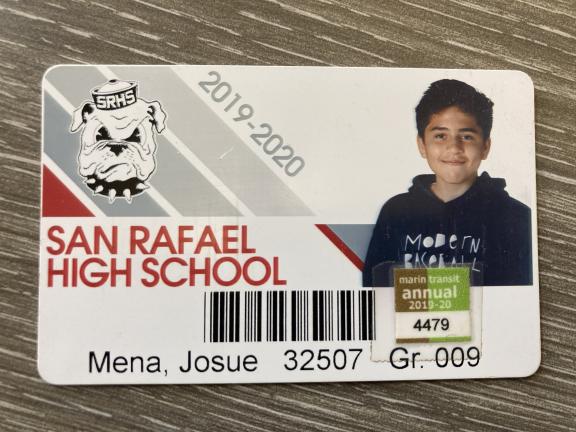
Freshman year me with a Modern Baseball hoodie. Modern Baseball is an alternative emo band from the 2010s, they’re not my favorite emo band, but the picture gets the point across.
June 8, 2023
“Let’s just forget everything said,” sang Mike Kinsella. “And everything we did, best friends and better halves.”
This shit sucks, I thought to myself. His singing wasn’t the best, it all felt out of tune. Even the riffs felt like its only saving grace.
“Goodbyes, and the autumn night, when we realized,” went the song. “When we were falling out of love.” These lyrics, and many more, were sung in one of most insignificant and whiny voices one might ever hear.
The cover art sucks, I thought. It was just a picture of a random house from Champaign, Illinois. Not even the full house, more like the top eighth with a lit up window. 704 W. High Street, it’s a lame symbol for one of the ‘best’ albums ever made or whatever, I thought to myself as I looked at the house on Google Maps.
“So, let’s just pretend, everything and anything, between you and me, was never meant,” the song played out with the same cool riff it started with. I closed the tab and hit play on ‘The Summer Ends’, the next track on American Football’s emo masterpiece, LP 1.
I already sorta knew about American Football from that classic ‘Never Meant’ riff, the one I described above. Other than that one riff, I never really bothered to care about or even listen to their music. But sometimes you’re listening to Pinkerton and then comes along a weird twinkly riff.
I think I understood American Football the first time I listened to all of LP 1. Being 14 and already familiar with lousy lyrics and whiny vocals made that aspect of their music a lot easier to consume. But those alternative tunings, weird time signatures, and the drumming from Steve Lamos was like nothing I ever listened to before.
Songs like “Stay Home,” where long and repetitive instrumental sections are met with lyrics so corny it makes you feel like you’re in a suburban town in Illinois. I think I was really “Never Meant” to like any of these songs. While Mike Kinsella sang and wrote about highschool heartbreaks, my mom was more preoccupied with figuring how to pay rent on time or conspiring a plan to get me to college.
I never had the time to worry about the various topics many midwest emo songs dealt with, a lot of these topics revolved around white middle class suburbia. All of that being said, I had no idea how to really express the feelings that came with growing up-low income and Latino in a place like Marin County. Although bands like Sunny Day Real Estate and the Promise Ring dealt with problems that weren’t really at the forefront of my mind, the feelings were still in the same realm.
I had a lot of thoughts hanging out in my brain that needed somewhere to be and when that guy from The Promise Ring sang, “I don’t know anyone or if anything will be all right,” everything felt pretty ok for a bit.
The Promise Ring were more of what you expect when you think of emo, rather than the complicated riffs that came with American Football, they took on a more relaxed pop punky demeanor. They set the stage for bands like My Chemical Romance to take over in the early 2000s.
I cringe thinking about how much a song like “Nothing Feels Good” by The Promise Ring resonated with me for such a long period of time. It isn’t a bad song, it’s just an emo song. It makes me feel washed a bit, sorta like I’m betraying the values that my Salvadoran forefathers held so close. It’s hard to listen to a guy touch on such, what feels like juvenile feelings and convince yourself that you’re manly. I wasn’t in the scene for too long, but when I was, I was really in it and forgetting the names of these bands proves to be too hard.
Imagining a Salvadoran revolutionary like Farabundo Marti, a guy who fought for agrarian reforms and the rights of indigenous people, listening to a band like Sunny Day Real Estate and being totally moved isn’t really believable. My mom isn’t a revolutionary, but the same message applies there.
The late 90s weren’t very kind to my mom. Coming from a small rural town in El Salvador on a week-long trip through the jungles of Guatemala and deserts of Mexico only to achieve very minor financial sustainability in Marin County wasn’t my mom’s goal. Working late shifts at the local Whole Foods, earning enough to survive, and dealing with a drunkard every night made a prospect like the American Dream lie on the wayside of everything else. Midwest Emo doesn’t really do a good job of conveying ideas or experiences like this, not that it has to.
These bands and my mom did not experience the same few years that made up the late 90s. Things were different and ignoring that, especially when it comes to the lyrics of many classic midwest emo songs, is a difficult feat. But I still love these bands.
My mom’s music taste revolves around many classic cumbia bands and hits, her favorite group being Los Hermanos Flores. I’ve tried showing her a couple midwest emo songs before and she usually nods a couple times and lets out a positive grunt.
The first time I played an American Football song to my mom yielded a pretty confused face.
“Do you like it?” I said. She took a couple seconds to respond, but her face was easy to read. It was blank. Man, I guess there weren’t a lot of math rock bands playing living room shows in San Salvador when she was growing up, I thought to myself.
After ten seconds my mom finally says something, “Is this a romantic song?” she asks. “Kinda,” I say back.
My mom lived on Union Street, right near San Rafael High, during the first few years after she first stepped foot onto American soil in the late 90s. Her stories of this time are sparse and sad.
One of her first jobs consisted of being a nanny for a family up the hill behind Miller Field, it wasn’t a great gig. She often talks about how the family, mainly the father, would often abuse her status as an undocumented immigrant when it came to negotiating pay and work times.
At around a similar time, American Football was performing live shows in dive bars around Illinois. They gained some interest in the local indie scene, but national recognition was a few years away.
My mom’s love life is a pretty scarce one, with the only consistent man being my dad, but even a word like consistent doesn’t really fit.
My dad and mom had a tumultuous relationship. One stretching from secondary school crushes to having two sons, with huge gaps in between and other lovers – my dad was good with ladies according to my mom – populating those voids.
My mom and dad worked at Whole Foods together right at the tail end of the century. My dad worked in the deli, while my mom worked the register. It almost feels like the plot of a bad midwest emo song, almost.
Their relationship was strained at Whole Foods. My dad, in the words of my mom, would often make a point of ignoring her at work, going as far as telling her that she should pick up a different shift, so they wouldn’t be seen together.
This is as midwest emo-y as it gets, is what I would say if I wanted to simplify the complex relationship between my parents. But their relationship never really had an autumn night where they realized they were falling out of love.
But still, I often wonder if any of the emotional tones captured in midwest emo would have resonated with my mom at the time, her being a self-described “hopeless romantic” and all.
In 1999, American Football finally released LP 1 through Polyvinyl Records. It was a hit across American college radio stations, but those blue soundwaves only managed to get so far.
LP 1 makes the late 90s seem dark and gloomy, with relationships only lasting so long and even dating someone seems like an unworthy thing to do. A song like “The Summer Ends”, where Kinsella details wanting to end a relationship, but not knowing quite how. Near the end of the song, he decides on letting it ride out and seeing what happens “when the summer ends”.
Emo is corny, you can hate it, you can love it, but it’s a great way of feeling a tiny bit better. It’s better than smoking cigarettes and other vices too, if only my dad was a teenager in a suburb outside of Chicago in the 90s.
My favorite emo song of all time is American Football’s “Stay Home”. An eight minute piece with long instrumental sections and not very intricate lyrics, as mentioned earlier.
It starts off with the same riff that goes on for three minutes while the drums slowly build up. At almost exactly three minutes, here comes this awesome chord that really changes the direction of the song.
“Don’t leave home again,” sings Kinsella in his reluctant voice. “If empathy takes energy, cause everyone feels just like you.”
The song closes out with a repetitive, “But that’s life, it’s so social,” all while the same guitar riffs and drum beat plays over until the very end. “But that’s life, it’s so so-so, so emotional,” and finally at the six minute and 47 second mark, Kinsella utters the album’s final words “so stay home”.
This song’s pretty good, I should visit this house sometime.
I don’t think I’ll ever really fully connect with an American Football song, some ideas still feel so far away, but the feelings that Mike Kinsella captures are more than applicable to my everyday life. I don’t need to be a sad white guy in a suburb to love midwest emo and that’s more than fine.

